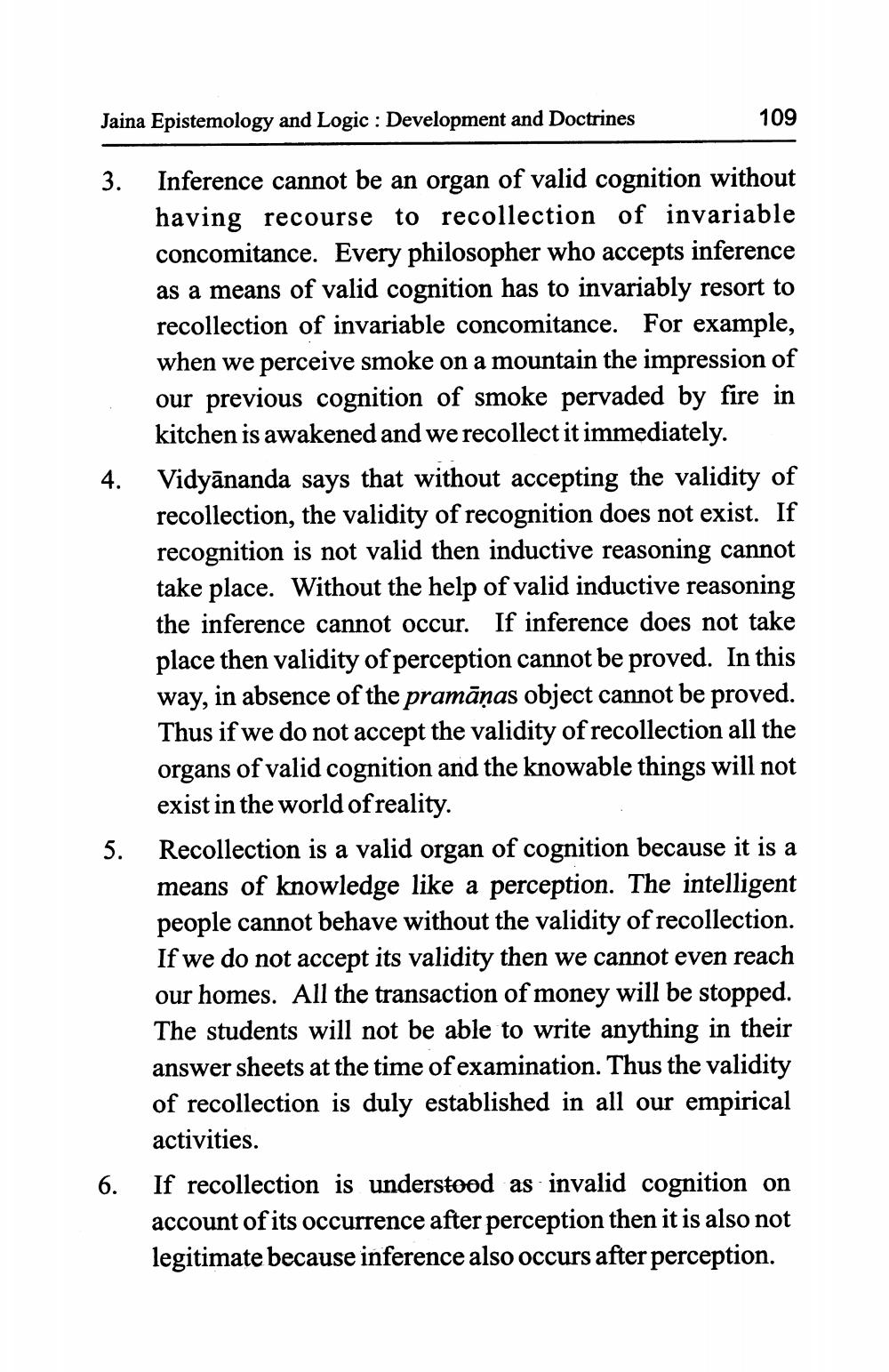________________
Jaina Epistemology and Logic : Development and Doctrines
109
3.
4.
Inference cannot be an organ of valid cognition without having recourse to recollection of invariable concomitance. Every philosopher who accepts inference as a means of valid cognition has to invariably resort to recollection of invariable concomitance. For example, when we perceive smoke on a mountain the impression of our previous cognition of smoke pervaded by fire in kitchen is awakened and we recollect it immediately. Vidyānanda says that without accepting the validity of recollection, the validity of recognition does not exist. If recognition is not valid then inductive reasoning cannot take place. Without the help of valid inductive reasoning the inference cannot occur. If inference does not take place then validity of perception cannot be proved. In this way, in absence of the pramāṇas object cannot be proved. Thus if we do not accept the validity of recollection all the organs of valid cognition and the knowable things will not exist in the world of reality. Recollection is a valid organ of cognition because it is a means of knowledge like a perception. The intelligent people cannot behave without the validity of recollection. If we do not accept its validity then we cannot even reach our homes. All the transaction of money will be stopped. The students will not be able to write anything in their answer sheets at the time of examination. Thus the validity of recollection is duly established in all our empirical activities. If recollection is understood as invalid cognition on account of its occurrence after perception then it is also not legitimate because inference also occurs after perception.
6.




